Mike Paradinas: "I experimented with Ableton but it did my head in, so I'm still using Logic"
Formed out of live tracks made in hotel rooms on tour, we chat to the Planet Mu label owner about his new µ-Ziq album, Grush
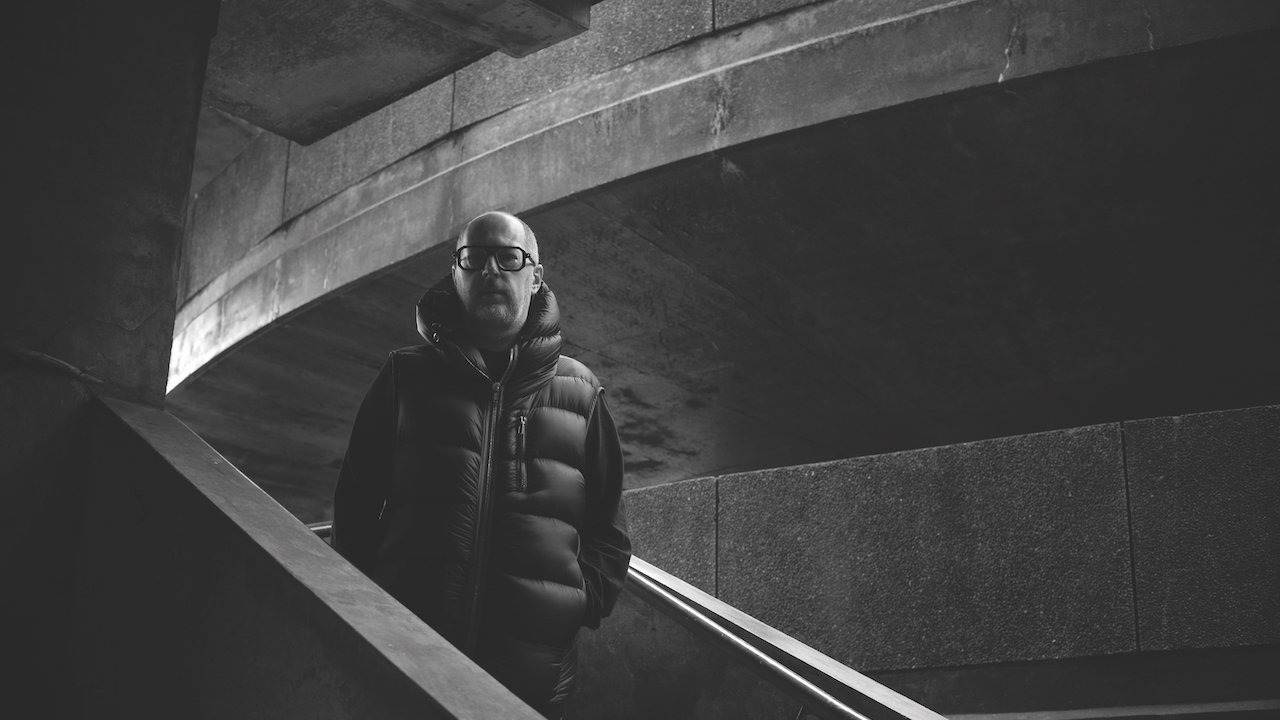
Veteran producer and Planet Mu label boss Mike Paradinas has been exploring the peripheries of electronic music for 35 years via aliases such as µ-Ziq, Jake Slazenger and Kid Spatula. His often visionary releases have mapped almost every corner of the electronic spectrum, while championing genres such as juke, footwork and IDM.
Best known for his µ-Ziq moniker, Paradinas’ latest album, Grush, is based on tracks created in hotel rooms prior to being road tested on stage. A vibrant collection, brimming with reverberating hardcore, jungle and footwork-laden beats, Grush is an effortlessly nostalgic kaleidoscope of melodic bangers illuminated by µ-Ziq’s unmistakeable signature.
Your Planet Mu label has been around for over 25 years now, which is an achievement in itself. How have you navigated the move from physical to online sales?
“It’s actually 30 next year. At the moment, it’s probably the most difficult it’s been for lots of record labels, which is probably more to do with the cost of living crisis. Global interest rates, manufacturing and postage has made everything so expensive that nobody wants to buys stuff at that price. Digital has been taken over by the majors and DSPs seem to be trying to squeeze the independents out somehow. You can sort of understand why they’re doing it, but artists don’t even get paid for the first thousand listens. When I was on a major I used to earn thousands and be able to make a living, but these days artists are earning in the low hundreds per month.”
Presumably, how you find and sign artists has also changed significantly. Is it based on intuition and are there certain markers that an artist needs to hit, generically or otherwise?
“A lot of its based on gut feeling, so you obviously have to have that first. Having said that, these days we do have to look at other things the artists are doing to see if they’re going to be a good fit. We look at analytics and followers, but you can’t always take that seriously. Someone might have 10,000 Spotify followers but no gigs and no other visibility – and maybe they bought those followers. It helps if an artist has engagement with an existing scene and is doing interesting things, but artists who are fans of Planet Mu and send us demos are usually okay.”
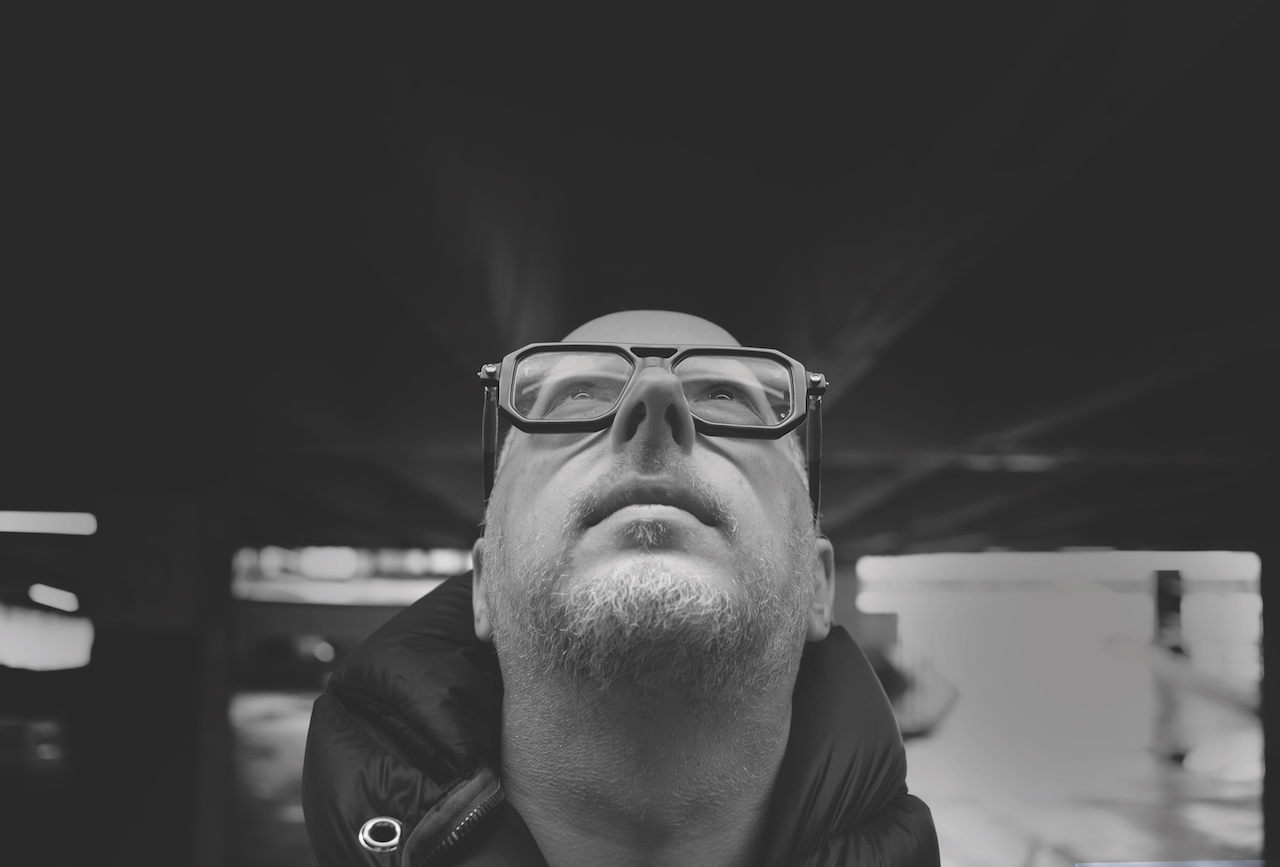
When µ-Ziq debuted in 1993 with Tango n’ Vectif it was seen as having a very cutting edge sound. Did you benefit from it being made during a period when technology allowed you to genuinely stand apart from your peers?
Want all the hottest music and gear news, reviews, deals, features and more, direct to your inbox? Sign up here.
“In those days, we all used the cheapest things we could find and a lot of the gear was borrowed. I remember seeing Ed DMX selling musical instruments at Music & Video Exchange in Notting Hill and seeing 303s on the shelf for £99. 101s were everywhere at the time and everyone was buying them, so if you wanted something to sound a bit different you’d have to get equipment that other people weren’t using and build around that. It was all very minimal, but the sound came from whatever we were using at the time.”
Were you tempted to create something that sounded innovative at the expense of the composition?
“It was just an exciting time and we were finding new ways of composing. I was genuinely into the compositions I was making and if it sounded horrible it was because I liked things to sound that way and apologise [laughs]. We didn’t think we were doing anything particularly technologically advanced and we weren’t at the cutting-edge – we were buying technology that was 5-10 years old and making something new out of it.”
These days, does it feel more difficult to stand apart from other electronic artists?
“People can see when you’re trying too hard and it’s the music that people want to hear that rises to the top. Today, it’s still to do with compositions and the sounds that people are using – you don’t need to have a lot of equipment, just a bit of imagination and something to say. Obviously, the technology has changed the way people write and compose and the whole landscape of music scenes, but underneath all of that if musicians have something to say that can be recognised then it will come through in the music and you can use cultural tropes to send messages to people. Techno’s been going for 40 years now, so when you’re quoting part of that it has a meaning that people will get within the scene.”
Do you think genre descriptions are less prevalent now and is that a good thing?
“There’s a new genre every week, like drift phonk, baile funk or the new distorted Jersey club sound that’s coming through. What you’re talking about is the fact that everything has been culturally fragmented because of digital technology and that has affected record labels and music scenes. There hasn’t been anything that’s captured the imagination of the country because the country itself is fragmented. When Britpop happened there was only four TV channels and everyone watched Top of the Pops. Now everyone’s playing games or watching YouTube and our attention has become fragmented so the culture isn’t unified like it was. That’s probably why a lot of people haven’t heard of certain genres coming through, but they do exist.”
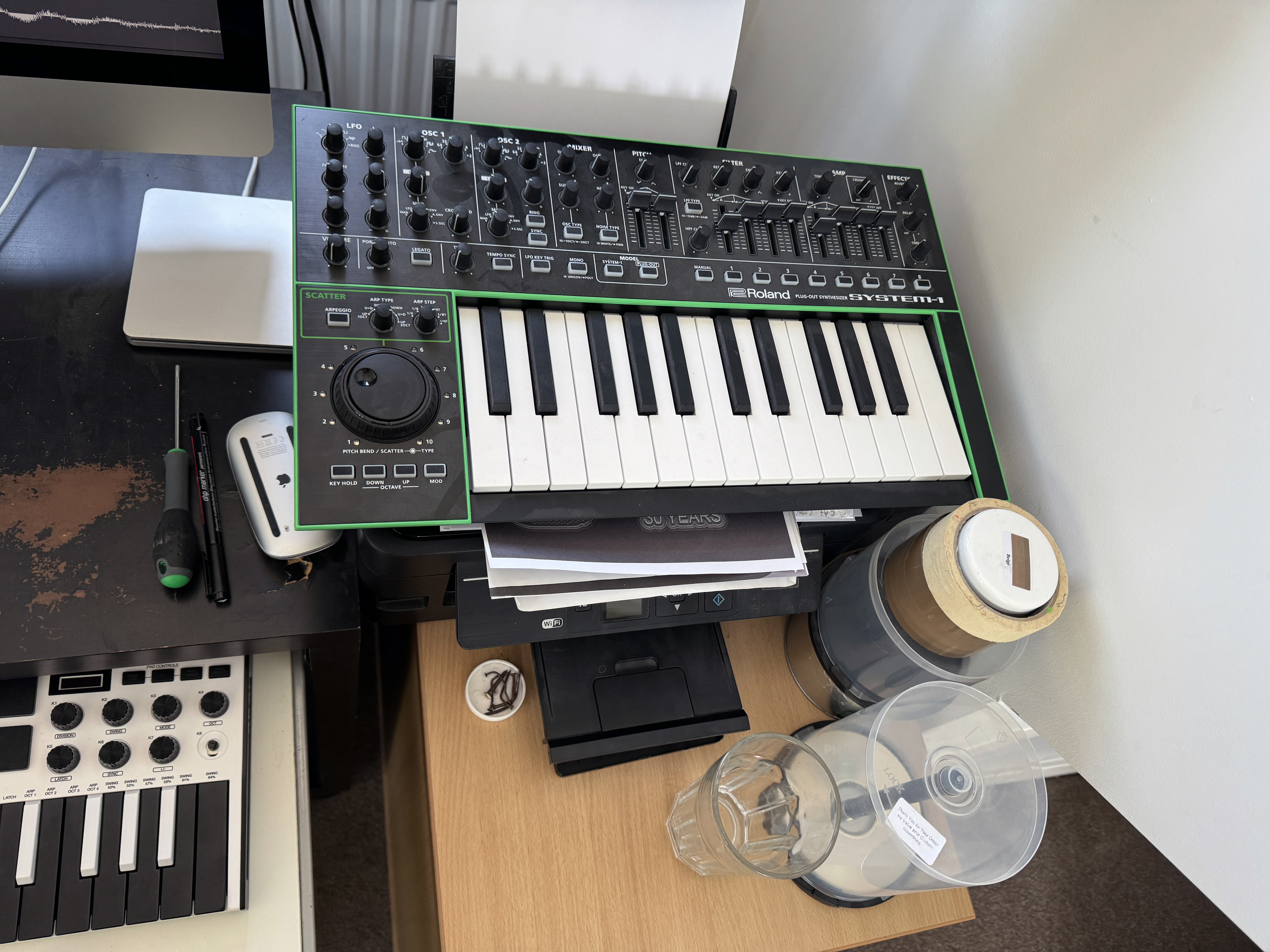
You’ve never really been a gear hoarder, but at some point you switched to being completely in-the-box. What precipitated that move?
“Around 2005, I split from my missus and was living in a bedsit so I had to sell all of my equipment to get some money. I bought a laptop and just used that and have been in the box ever since. It was a difficult transition, but I don’t know how much of that was to do with my mental health as opposed to how soft synths were back then. Obviously, everything’s improved a lot and you can do whatever you like in the box. The sound’s not the same because the process of using physical equipment is different, but it’s just as good and a lot more convenient because it’s easier to play gigs when you’re just taking a laptop.”
Did you notice that adjustment change the sound of your music in some way?
Everything has been culturally fragmented because of digital technology and that has affected record labels and music scenes
“I find that I’m writing exactly the same sort of shit whether it’s on a broken guitar or a laptop. I’m not saying that technology doesn’t lead you down paths because it does and I would like to get back into equipment at some point. I’m totally in the box for most things except for a few controllers, which I use for playing live, but I do have a few synths now, mainly for the kids to play around with. They’re interested, but distracted by gaming and would rather play Fortnite than make music. My daughter does have some music apps on her phone, but she’ll use them when she doesn’t have anyone looking over her shoulder. She hates any input from me – I think I can be a bit annoying!”
When you’re working on tracks on the road, is it literally just the laptop or do you bring a small MIDI keyboard and a few bits of hardware?
“It’s just the laptop. I do have a MIDI keyboard for playing live, but don’t tend to use it in hotels. I just want to get ideas down quickly, so I use the laptop version of a typing keyboard, which does restrict me in terms of the melodies I write at times but by not using a keyboard I’m not writing the same sort of melodies that everyone else is. I usually have a melody in my head, so I’ll just write them in with the mouse.”
Are you still on Logic or have you transitioned to Ableton like so many?
“Royal Astronomy was the last album I wrote on the Atari and then I moved over to Logic around 1999 when I wrote Bilious Paths. I did experiment with Ableton but it did my head in so I’m still using Logic. I know that Ableton has a lot more options now and I haven’t updated Logic for a while, but I don’t want to jinx everything and haven’t really got the time.
“Between running the label and my kids, I’ve often only got 10 minutes to get a track written and then I’ll go back and hone it down over the following weeks and months. I suppose I’m quite lazy – my soundcard is so old that it doesn’t work with my new computer; it’s just linked to my old computer and speakers. I do think good speakers are important though. I didn’t have good speakers for years, but now I have a pair of Genelec 8030C monitors.”
Tell us how your latest LP, Grush, came together. We understand it’s based on tracks that are in some way connected to live performance?
“I released Magic Pony Ride a couple of years ago and wrote an ambient album, 1977, at the same time which came out last year on Balmat Records, then in the months following I was writing tracks while I was playing live in support of those albums. I always like to write one new track for each gig so I have a reason to play live and a few tracks that excite me.
“A lot of the tracks that the [new] album is built around, like Hyper Daddy, Imperial Crescent, Windsor Safari Park and Metaphonk are ones that I’d written for those gigs. Belvedere was written in my hotel room because I’d arrived a few hours early, although I didn’t actually play it in the end because it needed a better mix down.”
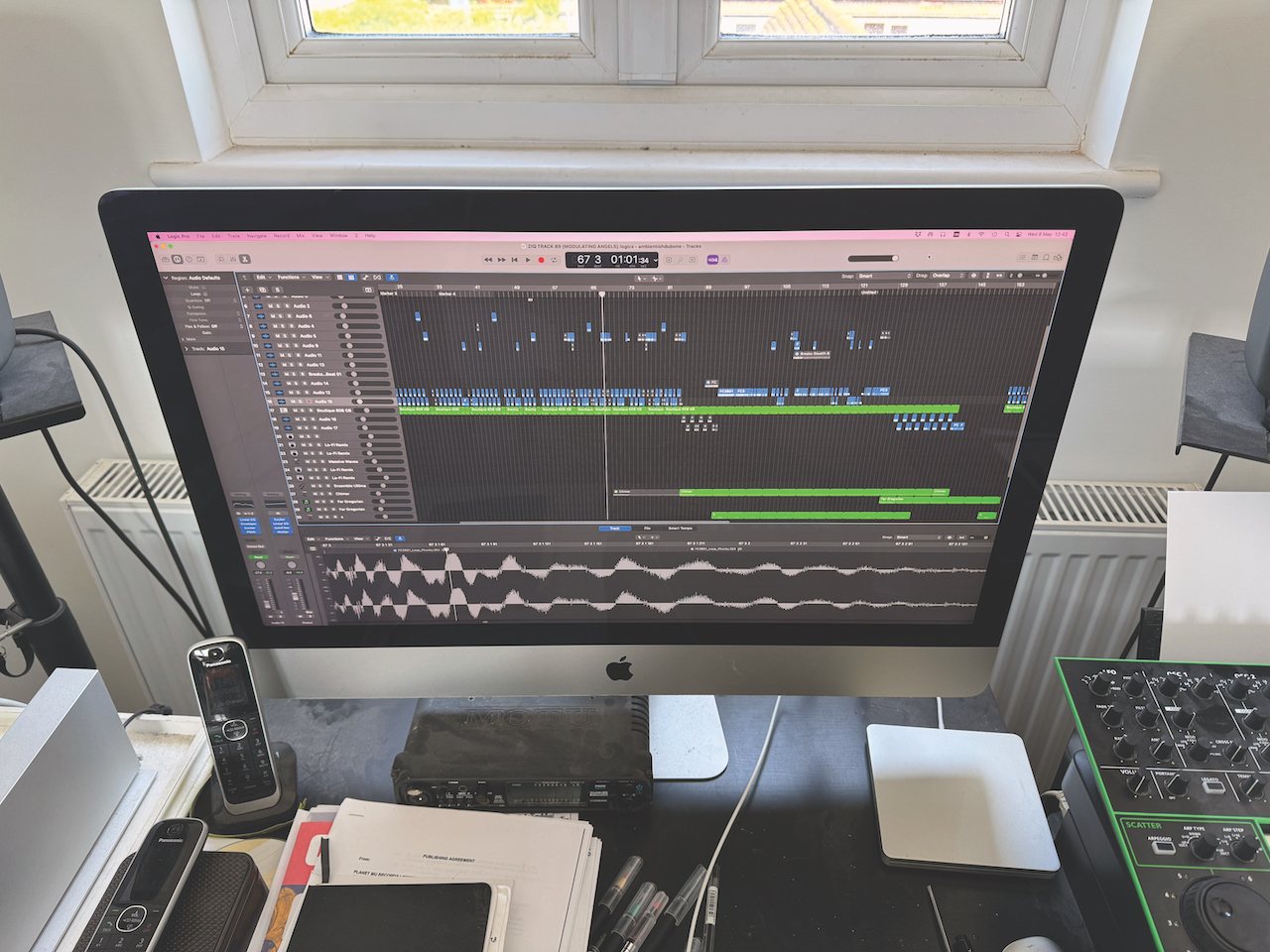
So you’ll literally write a track a few hours before playing a gig?
“I used to do that all the time. I once wrote one in the soundcheck when I supported Orbital at the Royal Albert Hall. It was so easy to put something down on the Atari, so I had 30 minutes during the soundcheck, wrote a track and played it that same evening.”
There are three tracks on the LP titled Reticulum – do they act as a thread?
“I had a little whiny synth lead sound saved called ‘reticulum’ that was used on all three tracks, although I changed it a bit so it doesn’t quite sound the same in each one. One’s an ambient track, another is quite a fast jungle track and the other is more techno, but the titles are just ways for me to remember what the tracks are. For example, Manscape is a remix of a track my wife made called Cloudscape.”
Drums drive a lot of the tracks, but did you specifically want to focus on electronic styles from the past like jungle and hardcore?
“I’m less nostalgic now – I’m just creating stuff completely cynically because I don’t know how to make anything else. I’ve tried making all these modern beats that the kids do, but I’m fucking shit at it. People like it and dance to it and there’s a resurgence of jungle now anyway with artists like Coco Bryce and Tim Reaper, so I thought, okay, let’s pretend I’m trendy and going back to it when I’m actually useless at writing amapiano or whatever the new genres are.”
Do you often find yourself listening to other electronic artists and wondering, how did they do that?
“A lot of the time. Yesterday I was listening to an album by AG Cook called Britpop, which has great production and is similar to the sort of stuff I would make if I could, but I can’t because I haven’t got the talent. He runs PC Music, which is probably one of the biggest electronic music labels in the UK.”
How have you found drum programming in the box compared to your previous use of hardware drum machines?
“Hardware drum machines are easy to use with Logic and I was always good at programming, but when I started using Cubase, or Cubeat, which is like a cheap version of it, I’d do it all in the DAW. Once I got a sampler in 1995 and started cutting up breaks, I found that instead of doing it all by ear, mapping it out and playing it on a keyboard, I’d just plonk a break beat on the screen, chop it up with the scissors and move it around, then reverse and pitch stuff if need be.”
What software libraries or tools do you find stimulating?
“I just use whatever’s in Logic and go through the menus until I hear something. They bought Alchemy, so you can probably hear on my last few albums that I’ve been using that a lot. I like a sound to work with another sound and for everything to sound balanced before I EQ or use a mastering plugin. I bought iZotope’s Ozone plugins for mastering, but for music I use iZotope or Logic exciters to bring things out from a mix and do find that the Logic ones are slightly more subtle.”
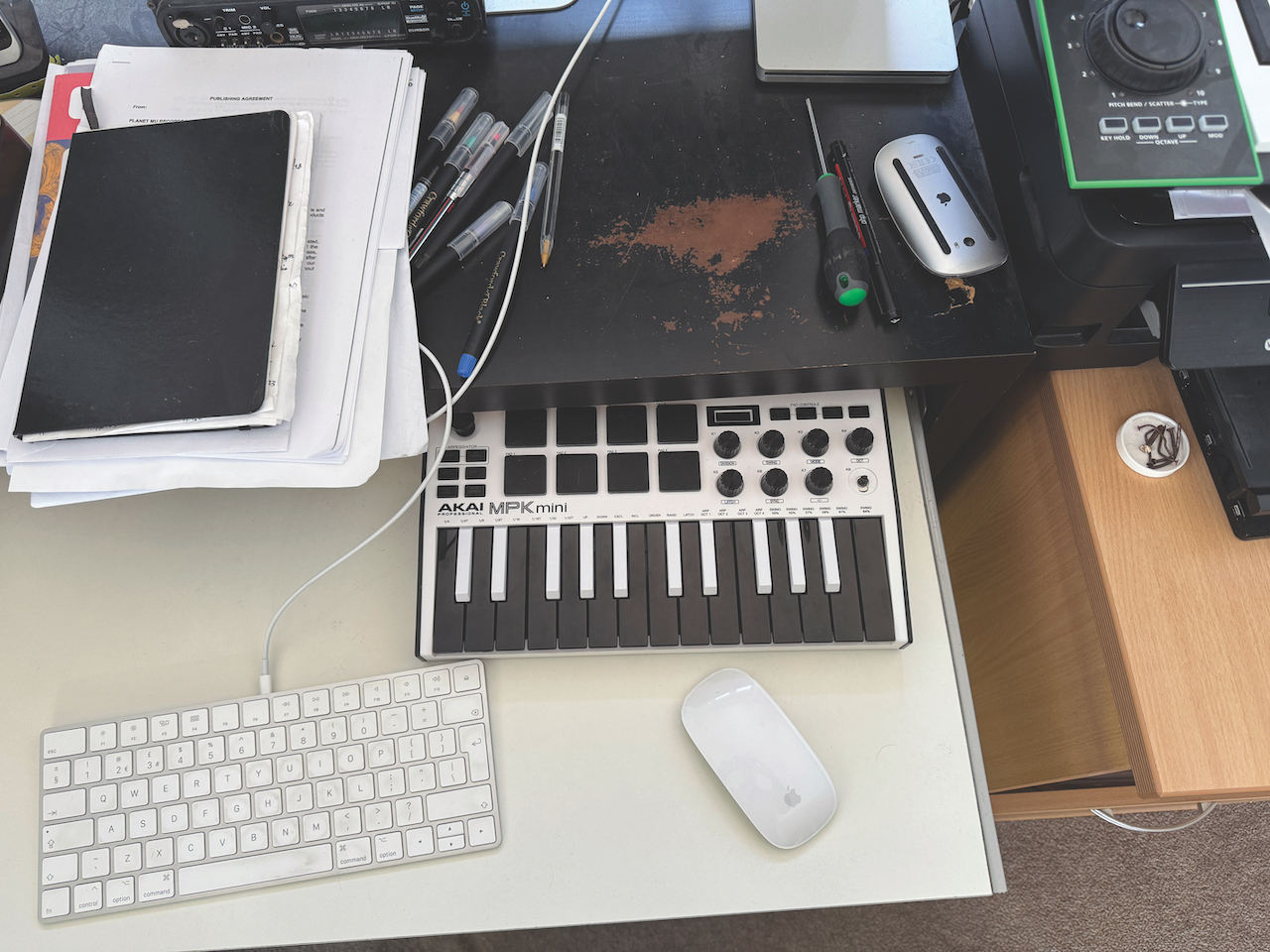
You mentioned having at least a few pieces of hardware…
“I’ve got a Nord Wave synth in a box that I really like – on Bilious Paths and subsequent albums I used to MIDI it up to Logic alongside a Nord Lead 2. Otherwise, I was using an Alesis Qmini as a MIDI keyboard but the USB port broke so I’m now using the laptop keyboard as a MIDI keyboard. The Roland System-1 Plug-out is based on the old modular Roland System 100 that The Human League and Aphex Twin used and I’ve had fun playing around on it with the kids, but don’t particularly like the spongy keyboard so haven’t used it in a track.”
You also have a Korg MS-20. Where did you pick that up?
“It’s actually a new one they re-released. It’s still called an MS-20, but the keys are smaller than the original. My friend bought it but needed money for the rent, so I bought it from him. It’s got really nice strong sounds that are good for rave tracks and I prefer those to be the lead sounds in a mix. For that type of track, I’ll quickly find a riff on the MS-20, play it in live and cut the audio up in Logic.”
We read that you hate the term ‘sound design’?
“The word ‘design’ implies that you’re making something for a use and know what you’re doing, but I like to improvise or just use what’s around me and go off gut feeling. For me, sound design negates the emotional side of making music, so I prefer descriptions like ‘composer’ or ‘musician’.”
The new µ-Ziq album, Grush, is out now via Planet Mu.



